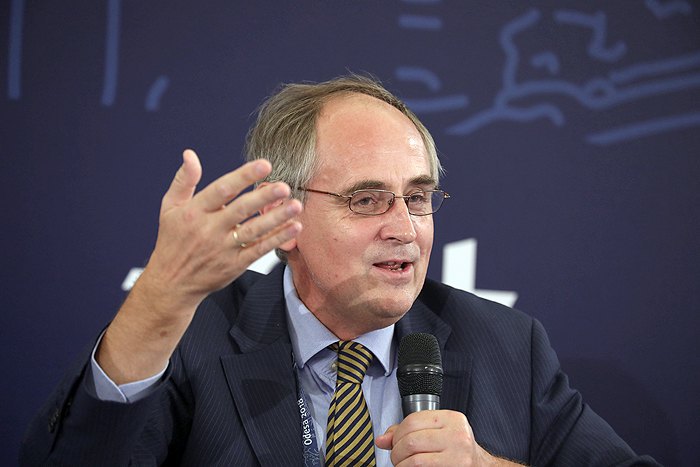
What publications besides The Economist help you to form a broad view of the world?
Undoubtedly, it’s The Economist, I think the latter is the most influential weekly magazine in the world. These are The Times, The Wall Street Journal, Bloomberg, Reuters, the German editions, in particular, Spiegel. I often use Twitter as a personal guide to news. In my opinion, it’s more useful than Facebook in the information sense as it allows to focus.
Who do you follow on Twitter? Journalists, I guess?
Journalists, institutions and the media as well. It depends on the topic. In the last few days, I was looking for information about Ukrainian energy, Odesa, UFF [Ukrainian Financial Forum]. Twitter definitely is more useful than any other tool for getting information. I am like Donald Trump, but he uses it just to send a message, I use it to receive it.
In 2015, The Economist experts included Ukraine in the list of the World's Worst Economies. How does the economic situation in Ukraine look from Britain now?
Ukraine has been through the worst. I mean previously you had long been seen as a crisis economy. Now it’s seen as the economy with a lot of perspectives, a lot of future. It suffices to look at the last significant news: Naftogaz is going to issue eurobonds, there are investments in renewable energy. You have an important legal victory in London [The Court of Appeal of England and Wales has upheld Ukraine’s petition of appeal to the verdict of the High Court in London in case of Kyiv’s $3bn debt to Moscow].
Obviously, the war in the east is still a serious problem, but I think people are beginning to understand that Ukraine is a really big country, there have been many changes. It does not cost much to improve the business environment. I think in the next few years the microeconomic situation will be stabilizing. The prospects are pretty great.
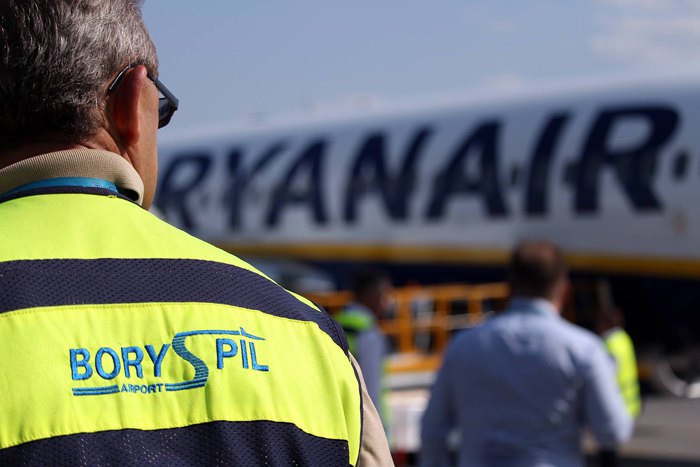
Some foreign economists believe that the "window of opportunities" for reforms will begin to narrow after the 2019 elections. What do you make of that?
The external pressure is really important here, whoever gets elected in Ukraine is going to need support from the international financial institutions. Ukraine is a party to the Energy Community Treaty, it makes deals with the EU, promotes bilateral relations with America. So, whoever gets elected, he or she will face quite strong external constraints in reforms. The question is not whether the reforms have formed or not, it's whether the reforms go slowly or quickly.
The political system is ready to renovate. You have reached the end of the road for Soviet political elite. It’s high time to see new faces.
Is the West really interested in anticorruption reform given that Ukrainian politicians and officials, both under Yanukovych and now, use Western financial structures for their corruption schemes?
I don’t accept it, we can call it a hypocrisy. I personally am in favour of prosecuting such individuals, freezing their assets. There is a real danger that the money will be diverted and in effect stolen by local oligarchs as it used to be during the reign of Yanukovych. I'm worried about the regional gas companies, the regional electricity companies which are still a kind of black hole in the Ukrainian energy system.
At the time of the [2014] Revolution you expressed the conviction that Ukraine will join the EU, and said that you were investing a great deal of effort to make it happen. Are you still optimistic?
Without a doubt, but now I stay away from the kind of the microdetails of high politics, I don't follow every twist and turn on the anticorruption court or what's happening in the Rada [Ukrainian parliament].
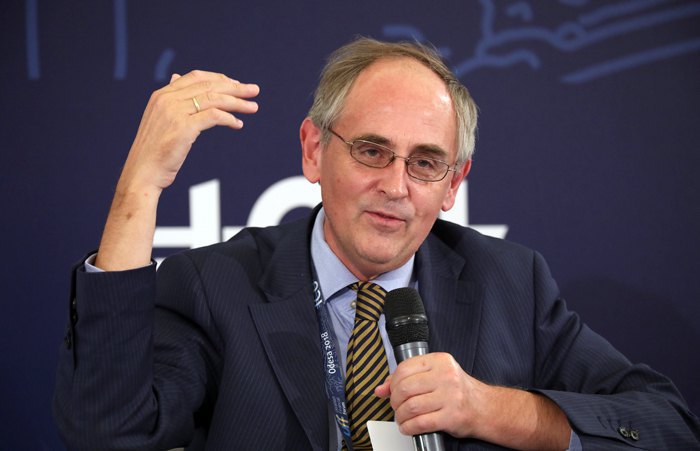
What did you mean by a "great deal of effort"?
I mean trying to get Western elites to understand a broader picture of Ukraine. You know, the headlines about Ukraine tended to be more negative. But the reality is more positive.
We can say that I lobby the interests of Ukraine, give evidence to the British Parliament, to the United States Senate Committee on Foreign Relations. The Centre for European Policy Analysis [Edward Lucas is a Senior Vice President at the Centre] is constantly involved in practical security questions increasing the awareness of Ukraine in Washington, London, Brussels.
My family donated money for the Ukrainian Catholic University in Lviv in the name of my father who was a big supporter of Ukraine. So, I just keep doing what I've always been doing since 1986 when I was campaigning for political prisoners and religious freedom in Ukraine.
How would you suggest we should build economic relations with a country which has de facto waged a war against you? Let’s say Russia and Ukraine
Russia isn’t a reliable country as a trade partner, and the lesson for the last 25 years is that investing in Russia is a very high risk. I try to dispel the myth that Russia is a big hope for the emerging markets. We need to see Russia in a very practical way.
People in the West consider Ukraine as the physical front line, but the real one is in Brussels, Berlin, Washington. This is where the battle over Russian influence is really strong.
The big question is will the people wake up to the real danger that we face from Russia. Ukrainians get it. People in Italy, Germany and USA often don't understand that Russia has a very serious importance when it comes to security threats.
Is it right, from an economic perspective, to limit the flow of Russian investments?
It depends on what we mean by Russian investing. If we have a high-tech startup from Smolensk, that's fine. But in terms of the big state-owned companies and big banks, you need to be very careful. I'm very worried about VTB Bank, Gazprom, Rosneft. They are basically a part of the Russian state and you should treat them with extreme scepticism.
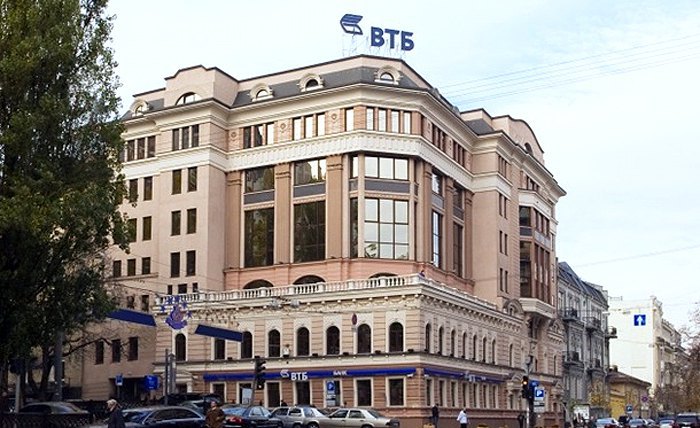
It’s very hard to make the real assessment of the level of Russian investment because it could come from offshore companies, for example, from Cyprus or the British Virgin Islands. And one thing that not just Ukraine but all the West needs to do is to be much clearer about financial transparency. And I would recommend you don't accept investment from any company where beneficiary ownership is unclear.
We are moving towards this in Britain and the United States, but I think that Ukraine is particularly vulnerable to this dirty money which comes with political connection. So, you should be really emphasizing transparency at every level.
You used to mention that the West is much bigger and stronger than Russia, and it gives a great advantage in terms of coordination. Not too long ago you wrote about the possibility of the West downfall on the scale that befell the USSR. What are the coordination failures then? Are they also connected with money?
You are right. The main fault is the attitude towards money. Of course, during the Cold War the West saw capitalism as a better model of the state system. The most important thing was to win. I think after 1991 we lost our moral and strategic compass. That time all businesses were considered as good business and it opened us up to attack through dirty money chiefly gained through offshore financial centres. Because of this, the economy crashed in 2008. The dirty money entered the political system, it led to hostile states like Russia or China buying political influence.
What consequences might this have for the post-Soviet states gravitating towards a Western model?
In some ways, they can reach more things. I suggest you don’t use the definition "post-Soviet" because what does Estonia, for instance, have in common with Kyrgyzstan?
I think these countries have a potential to leapfrog the West. And we've seen it with Estonia which went digital more quickly than most countries in the West. Ukraine has a real potential, for example, in the energy system you can get straight from the old-fashioned kind of 1980s energy system to smart grids renewable 21st-century energy without making all the intermediate steps that we need to.
The other advantage you have is the experience in a hybrid war, you contribute to our overall security and can help us. Many Western countries are just waking up to the dangers of active measures whether it's from Russia or from China. And your security culture, the ability of the government, non-government organisations and business to see, work out ways of dealing with it is perhaps more impressive than people in Ukraine can realize. We have a lot to learn from you.
What significant differences do you see between this and previous cold war?
Russia is weaker and it’s not really a military confrontation. The most important thing to realize is that we view 1991 in different ways and for the West and for enslaved countries it was a liberation.
This year was important for you just as 1945 was for the Netherlands or Denmark. That's the fundamental return to the world and to freedom. In Russia, there are ambiguous views, was it the geopolitical catastrophe of the century, as Putin says, or it was a liberation for the Russian people as Nemtsov and other liberals say? That's the fundamental problem.
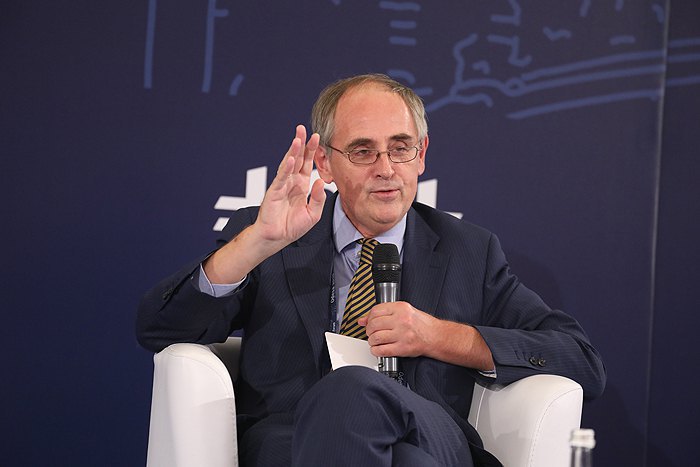
The new cold war is often associated with the Russian Federation under Vladimir Putin's presidency. But in your book, you noted that it started long before that. Finish your thought, please.
I think he is a symptom of the problems in Russia, not the cause of them. The latter will exist until Russia stops its imperial neurosis. It's always going to be difficult and the imperial neurosis sometimes manifests itself in attacks on neighbouring countries: Estonia in 2007, Georgia in 2008, Ukraine in 2014, one could also mention Moldova and other places.
Sometimes the imperial neurosis manifests itself in terms of repression at home as well. Alexander Etkind has brilliantly described Russia's internal colonization in his book. The Kremlin treats Russia the way Europe used to treat Africa, as a source of money and raw materials.
It’s a very deep-seated problem and I think it existed before and will exist after Putin.
During the Cold War, it was customary to choose the allies for reasons of geopolitical interests, turning a blind eye to the regime and democratic values. In one of the interviews, you said that Europe was not attentive to Ukraine until the Revolution. With this in mind, don't you think that the West acts in its own geopolitical interest? Is Ukraine a new ally in the new cold war?
You are absolutely right, we have had control over some very unpleasant allies. For instance, South Korea, Taiwan where the dictatorship was established. Spain, Greece, Portugal, Turkey - they are all members of NATO under different sorts of dictatorship. The main thing about a war was not to lose it. I'm sorry, we had to make these terrible compromises. Sometimes I think it was worth it in the end. But Ukraine is very different, it is the only country in Europe where people faced bullets for European values, in Maidan we saw blood-soaked European flags, and this was tremendously important.
This made us reflect that Ukrainians care about European values sometimes more than we do. I don't see Italians or Belgians dying for European values. Luckily, they don't have to. In a way, we are in debt. That’s why the relationship between Ukraine and the West could be a great deal stronger. I would like us to do more, but I don’t think that we are using Ukraine as a tool. Don't forget that the natural instinct of the West is to be friends with Russia and forget everybody else. This is what the Germans would like - all these small countries to be quiet so they could trade without any problems with Russia and get cheap gas.
We have made a big step forward, prompting people in Europe to recognize that these small countries are not bad guys, and Russia makes troubles for them. We made them doubt and reason. But I don’t think that we have completely succeeded in this.








